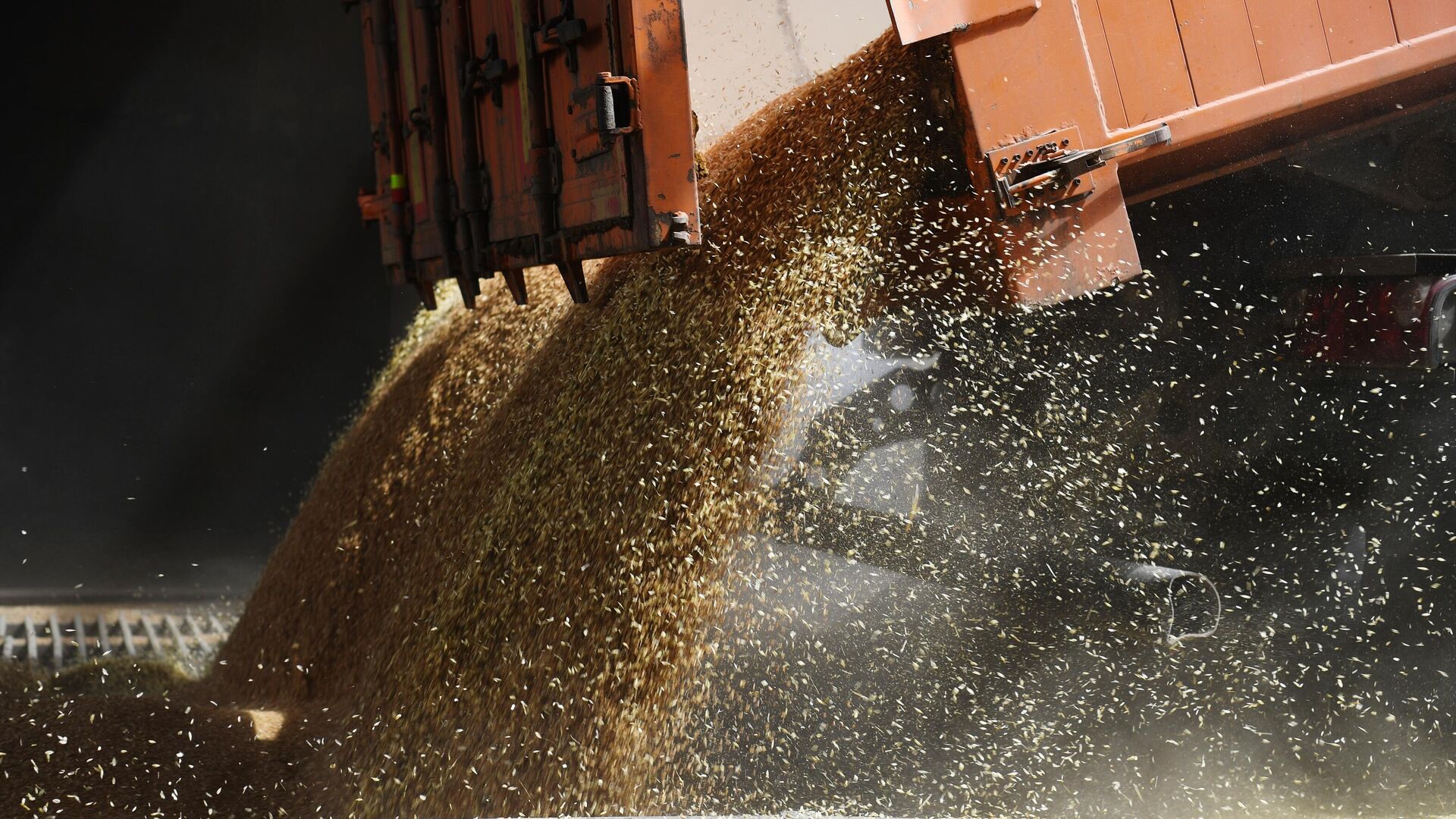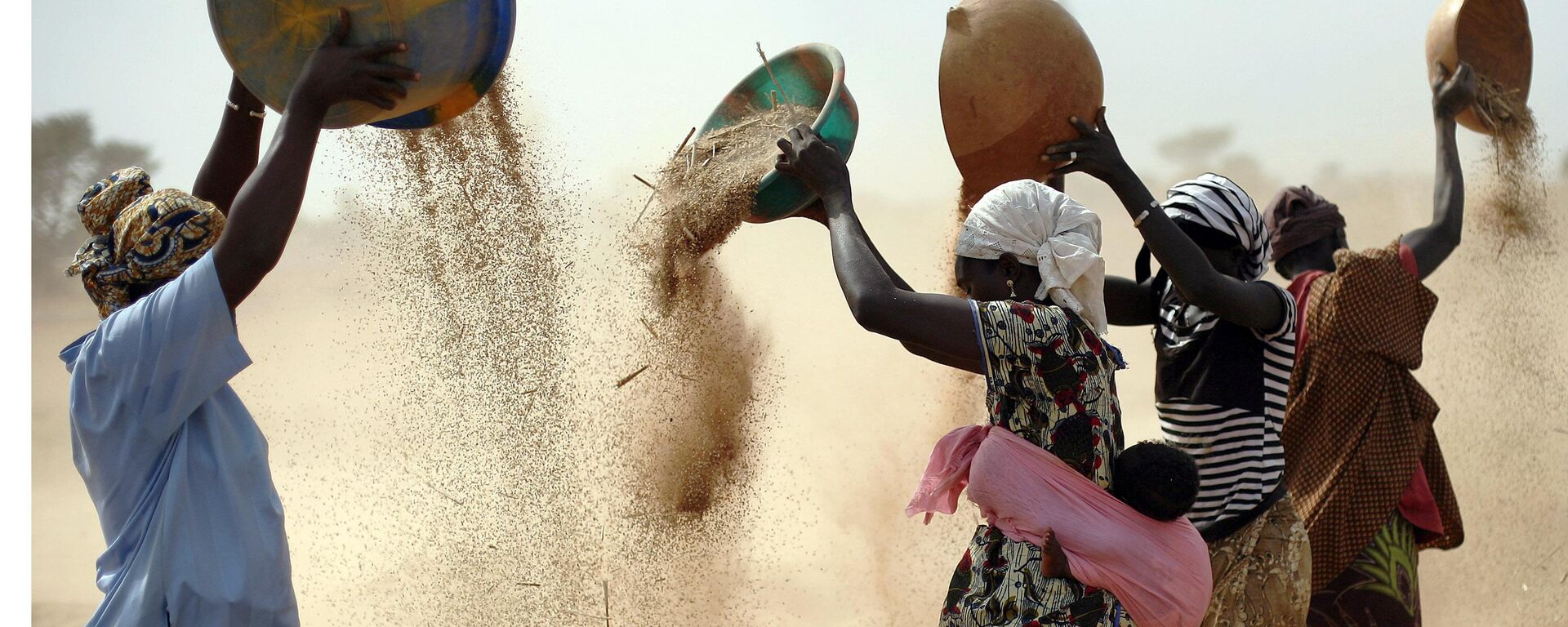https://sputnikglobe.com/20230721/turkiye-receives-explanation-from-russia-regarding-non-renewal-of-grain-deal-1112050003.html
Turkiye Receives Explanation From Russia Regarding Non-Renewal of Grain Deal
Turkiye Receives Explanation From Russia Regarding Non-Renewal of Grain Deal
Sputnik International
Ankara has received Moscow’s detailed explanation regarding reasons for non-renewal of the Black Sea Grain Initiative, Turkish Foreign Minister Hakan Fidan said on Friday.
2023-07-21T19:01+0000
2023-07-21T19:01+0000
2023-07-21T19:01+0000
black sea grain deal
turkiye
grain
grain exports
russia
economy
https://cdn1.img.sputnikglobe.com/img/07e6/07/0f/1097347705_0:139:3147:1909_1920x0_80_0_0_6d2fee74f6c26e489c72b51327a0fc08.jpg
"We are making serious efforts to renew the grain deal, Turkiye is in in favor of bringing Russia back to the table… During a conversation with [Russian Foreign Minister Sergey] Lavrov, we received detailed explanations regarding the reasons for Moscow's position," Fidan told a press conference.Russia, Ukraine, Turkiye and the United Nations struck a deal to provide a humanitarian maritime corridor for ships with food and fertilizer exports from Ukrainian Black Sea ports on July 22, 2022. However, while Moscow has been performing its part of the accord, obligations to lift sanctions imposed on Russian vessels engaged in grain and fertilizer exports were not met.Moreover, problems with insurance and servicing of ships in ports were not addressed. Banks did not issue loans to purchasers of Russian grain and denied bank guarantees, often referring to the danger of Western sanctions.Furthermore, the grain transported via the Black Sea barely reached the poorest countries, which was one of the main points of the deal. Only 2.6% of the deliveries were sent to countries in need, while 80% of supplies were heading to nations with high or above-average incomes.
https://sputnikglobe.com/20230719/russia-ready-to-supply-grain-while-west-sabotages-global-food-security---putin-1111995808.html
turkiye
russia
Sputnik International
feedback@sputniknews.com
+74956456601
MIA „Rossiya Segodnya“
2023
Sputnik International
feedback@sputniknews.com
+74956456601
MIA „Rossiya Segodnya“
News
en_EN
Sputnik International
feedback@sputniknews.com
+74956456601
MIA „Rossiya Segodnya“
Sputnik International
feedback@sputniknews.com
+74956456601
MIA „Rossiya Segodnya“
black sea grain deal, turkiye, grain, grain exports, black sea grain initiative, grain deal, food exports, grain initiative, grain export, turkey
black sea grain deal, turkiye, grain, grain exports, black sea grain initiative, grain deal, food exports, grain initiative, grain export, turkey
Turkiye Receives Explanation From Russia Regarding Non-Renewal of Grain Deal
ISTANBUL (Sputnik) - Ankara has received Moscow’s detailed explanation regarding reasons for non-renewal of the Black Sea Grain Initiative, Turkish Foreign Minister Hakan Fidan said on Friday.
"We are making serious efforts to renew
the grain deal, Turkiye is in in favor of bringing Russia back to the table… During a conversation with [Russian Foreign Minister Sergey] Lavrov, we received detailed explanations regarding the
reasons for Moscow's position," Fidan told a press conference.
Russia, Ukraine, Turkiye and the United Nations struck a deal to provide a humanitarian maritime corridor for ships with
food and fertilizer exports from Ukrainian Black Sea ports on July 22, 2022. However, while Moscow has been performing its part of the accord, obligations to lift sanctions imposed on Russian vessels engaged in grain and fertilizer exports
were not met.
Moreover, problems with insurance and servicing of ships in ports were not addressed. Banks did not issue loans to purchasers of Russian grain and denied bank guarantees, often referring to the danger of Western sanctions.
Furthermore, the grain transported via the Black Sea
barely reached the poorest countries, which was one of the main points of the deal. Only 2.6% of the deliveries were sent to countries in need, while 80% of supplies were heading to nations with high or above-average incomes.



